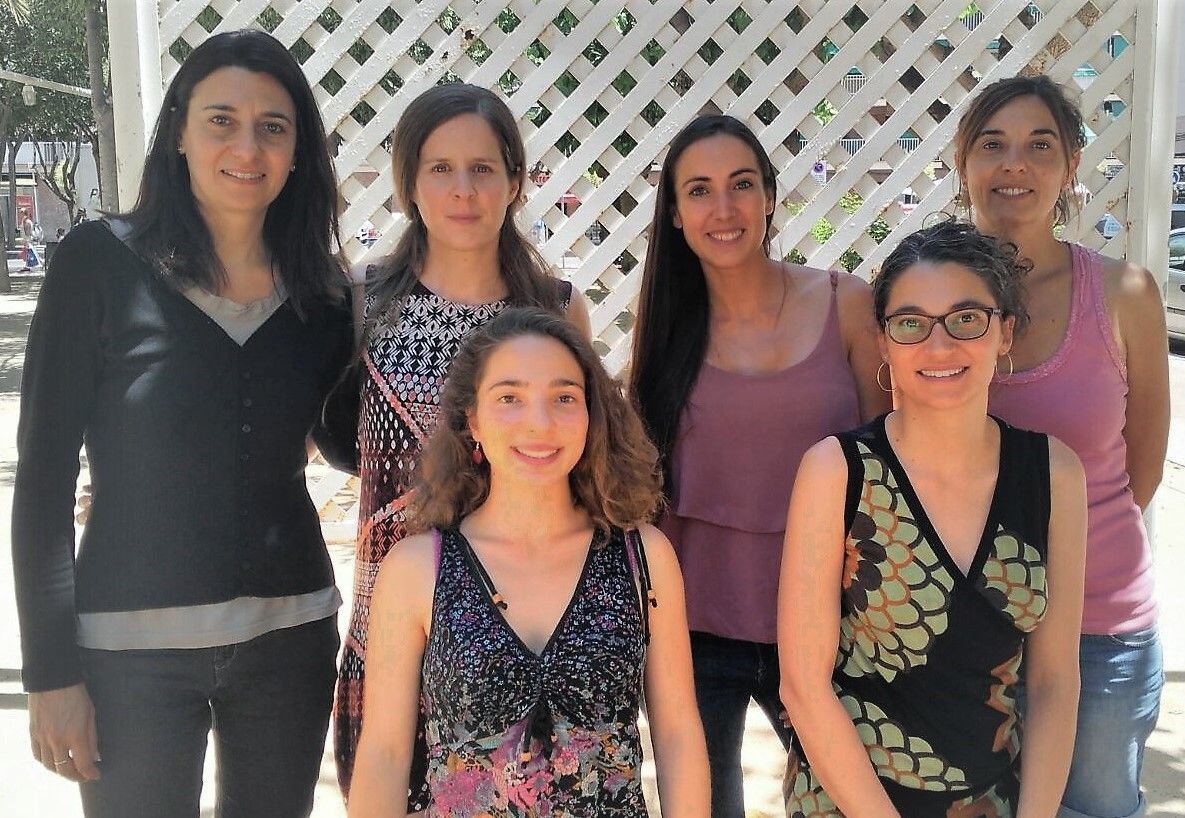
“In 2014, we realised that there were a lot of people in a delicate financial situation because of the crisis, which meant they did not have access to healthy and balanced food, and at the same time there was a lot of high quality produce which for aesthetic or other commercial reasons was thrown away,” says Núria Casas, project head of Espigoladors. It was this that led Mireia Barba, with two partners, to decide something had to be done to combat food waste.
Espigoladors is a non-profit organisation that was set up to provide a response to three issues: food waste, the difficulty of some groups to get quality produce, and the lack of job opportunities for people in a precarious situation.
One of the association’s main tasks is to recover the produce lost in the fields. This produce is collected by groups of volunteers, who can then take food home with them. “Anyone can be part of the team of volunteers, whether they come to pick produce regularly or only occasionally,” says Casas.
Some 90% of the food picked goes to social organisations and the remaining 10% is used to make food products
Some 90% of the produce picked goes to social organisations, such as collective dining halls, food distribution point or bodies that give out food parcels. The remaining 10% is used to make food products, as Espigoladors also turns the produce into products such as jam, to lengthen the food’s life span. Selling these products allows us to “make the association’s business model sustainable,” adds Casas.
Picking and transforming produce
“We pick all types of produce and in different places, but above all in the areas of Baix Llobregat, Maresme and Vallès Occidental. Different types of produce are picked depending on the season, although the busiest time is when there is a change of crop,” says Casas. Espigoladors has a network of farmers they work with, who call them when the harvest is over and when there is still produce left over that is to be thrown away. Yet, the process goes quickly enough, as the farmers contact the association between 48 and 72 hours in advance, which gives them time to find volunteers. That is why the number of volunteers taking part on any one day or another varies: “Maybe one day there are four of us and the next, 25,” says Casas.
Anyone can become a volunteer and take part in picking produce. According to Casas, “perhaps on one day there are two older retired ladies, two students, an unemployed person... the people who want to take part is always diverse.”
To turn the produce into food products, the organisation works with two external workshops, although it plans to open its own, in Prat de Llobregat, in the autumn. “The intention is that this task of transforming the produce can become a job opportunity for people who have it hard finding work,” says Casas.
"We want the new workshop to offer job opportunities to people with less chance of finding work"
Under the name Es Im-perfect, the food products they make are then sold in shops. The association has commercial understandings with five food companies with social projects: The Olivera cooperative, the Casa Dalmases foundation, Delícies del Berguedà, the Sambucus cooperative and El gat del rosal.
Awareness activities
The organisation also does a lot to make as many people as possible aware of the problem of food waste. “We do different activities to encourage people to fight against food waste in their daily lives,” says Casas. One of these activities takes the form of campaigns with companies aware of the issue, such as Unilever.
Through Unilever’s volunteer programme, the firm’s staff took part in picking produce in an agricultural area of the Llobregat delta, collecting around 1,000 kilos of potatoes per person that went towards helping more than 250 families in Prat de Llobregat through Prat’s Punt Solidari.
Espigoladors has also focused its activities on young people, through working with secondary schools. “We are now putting together the third edition of the Premi al menjar no es llança, a contest of ideas to reduce food waste,” says Casas. With this prize, the association encourages young people to come up with new ideas in order to deal with the problem. Moreover, this year, Espigoladors will for the first time launch a children’s category in the prize, with illustrated stories that talk of imperfect fruit and vegetables and why food is thrown away. All the stories in the contest will be compiled into a book that will go on sale during next year’s Sant Jordi day.
Non-profit organisation
The sale of the food products they make is how Espigoladors tries to fund itself. “The intention is to be able to come up with a sustainable business model, which does not alway depend on external funding or grants, even though we still haven’t achieved it,” admits Casas. Nevertheless, the association keeps going thanks to the sale of the food products it makes, the awareness activities, other projects and grants.
"We are not working sto go on foerever, but so that we won’t be necessary"
After three years in operation, Espigoladors has collected 298 tonnes of produce, has carried out 225 activities raising awareness of food waste, while they work with 49 producers and companies. Yet, “the long-term aim of the association is to disappear: we want people to be so aware of the issue of food waste that a project like ours is not needed; we are not working to keep going but so as not to be necessary,” Casas concludes.